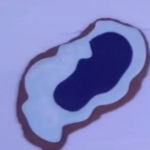Urine samples are used by doctors to evaluate our health and determine abnormalities. The urine sample tests taken for a medical check-up are called urinalysis. Urinalysis tests are painless, and can be used for both children and adults. There are various components that can be monitored from such a samples, one of them being specific gravity.
Urine specific gravity tests compare the density of water to that of urine. This is a quick test that is used to check how efficient kidneys are in diluting urine. When the urine is very concentrated, the chances are the kidneys are not okay or the patient is not taking enough water.
Normal specific gravity of urine in adults
The urine specific gravity range that is considered normal for adults is between 1.000 to 1.030. There are various factors that could vary this level. These factors include dehydration, emesis, a lot of sweating, diarrhea, glucosuria, infection in the bladder or urinary react, hepatorenal syndrome, low blood flow in the kidney and excessive production of antidiuretic hormone, which is brought about by the syndrome of improper antidiuretic hormone synthesis.
Specific gravity, which is greater than 1.035, is associated with obvious dehydration. In cases of neonates (newborn children), the normal range of urine specific gravity is considered 1.003.
Variations
Specific gravity determines the ability of the kidney to dilute or concentrate urine in comparison to plasma. It compares the weight of particles of urine to that of distilled water usually 1.000. Urine contains several substances such as salts and minerals, hence its specific gravity is relatively higher, and it ranges between 1.005 to 1.025. However, the specific gravity can be higher than that due to an increase of other components such as proteins or if fluid levels go down due to dehydration.
At times, dyes like radiopaque can be released from the body through urine and may increase the specific gravity of a person, temporarily. As the concentration of urine continues to rise, the specific gravity also increases. Because the kidneys of infants do not have the capacity to concentrate urine like adults, their specific gravity is usually lower.
If unusual substances such as glucose, dyes, and proteins are absent in one’s urine and the kidney still excrete urine with high concentration rising specific gravity, chances are that the cause could be due to increased production of ADH, which stimulates more water re-absorption in the tubular leading to lower levels of urine. There are various factors that could lead to high ADH secretion. Some of these include stress, medications, trauma and surgery. Dehydration, as mentioned earlier, could be another cause of high specific gravity.
Specific gravity can decrease when one’s urine becomes less concentrated. This condition is known as diabetes insipidus. It occurs when anti-diuretic hormone decreases or is absent due to malfunctioning of the various organs, mostly pituitary glands. Because there is a high concentration of ADH in the urine, kidneys secrete high levels of urine which are less concentrated, making the specific gravity remain low.
Kidney diseases such as pyelonephritis and glomerulonephritis affect the filtration and reabsorption ability of the kidney. As a result, the urine produced will have low specific gravity and decreased urine levels.
Renal failure leads to a fixed specific gravity, which ranges from 1.007 to 1.010 as the nephrons hypertrophy try to develop compensation mechanisms. The compensatory reactions in kidneys lead to secretion of urine with plasma always regardless of amounts of fluids taken or time.
Specific gravity of urine in children
Recent research has shown that the concentration of urine in children increases as children mature from pre-adolescence towards adolescence. An example is a case study on the increase of creatinine concentration with age as children mature. It has also been discovered that diurnal temperature variations determine urine concentration in children.
In the morning, the concentrations are usually higher than any other time of the day. This research is evidenced by human physiology because between evening and morning there is usually less fluid intake meaning the rate of dilution of the urine is low. In addition, urine samples taken during summer have had a higher concentration of substances than those taken during other seasons. The findings of creatinine research showed that the levels were higher during hot seasons.
Overall, the varying of urine concentration among persons and over time shows the need to constantly evaluate specific gravity, especially in children. It is also vital that corrective urinary corrections are taken if results are abnormal. Variation in substances found in urine that affect specific gravity can be corrected.
There are no harmful side effects of specific gravity test. Urine specific gravity tests involve normal urination and do not cause any discomfort. The test does not result in any harmful effects. The test is painless but people with urinary tract infection are likely to experience a painful or severe burning sensation during urination. It is advisable that one seeks medical advice if they feel any discomfort during urination.

